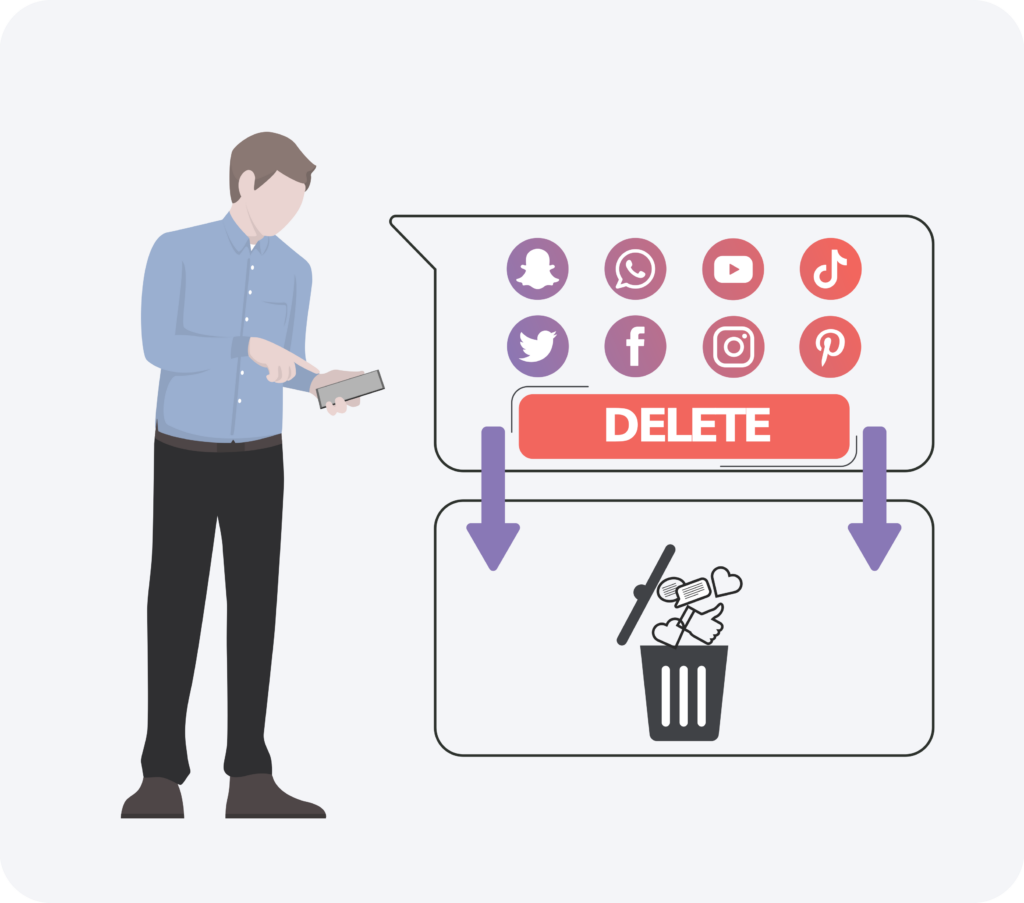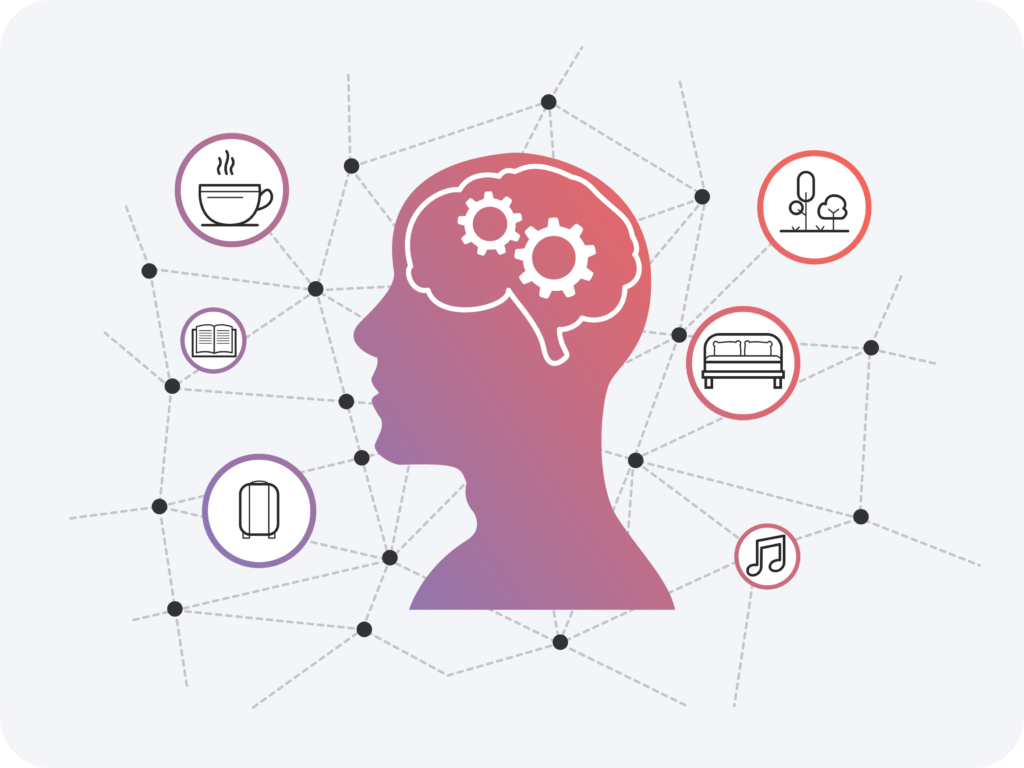15 min to read

A deep life is a good life
Cal Newport
Introduction
Today, we have minicomputers in our hands that make practically any bit of information or item available at the tap of our finger. The options to communicate with someone are seemingly endless: we can call, email, text, Zoom, Slack, Skype, Instagram, Facebook message, or Tweet. We are constantly connected.
We often assume that society’s technological innovations have made us better off and, in many ways, they have. However, the technological climate has hindered our ability to perform cognitively demanding tasks with intense, deep concentration – also called “deep work”.
Deep work is a term coined by Georgetown professor Cal Newport in his seminal book of the same name. Newport defines deep work as “professional activities performed in a state of distraction-free concentration that push your cognitive abilities to their limit.”
While society increasingly values multitasking, it is a focused and undistracted state of deep work that leads to mastery of a subject, clarity of a plan, and radical productivity. Deep work is essential to peak performance, both professionally and personally.
The following is an overview of the core principles of deep work and tips on how to achieve it. We would like to acknowledge that many of these concepts are taken directly from Newton’s book, Deep Work, a book we recommend to all Arete clients.
A note from Arete
We preface this overview with the understanding that long hours for our clients are often a requirement. We are not discouraging these hours, if they are necessary. Instead, in this overview, we seek to educate or remind our clients of the importance of high-intensity, undistracted focus and help them incorporate “deep work hours” into their often hectic schedules. Further, if you read this document and realize you could cut back unproductive or inefficient hours from your schedule, we certainly encourage you to do so.
Core Principles of Deep Work
Deep work is radically effective
If you are seeking to become an expert, learn a subject quickly, conduct rigorous analysis, or create insightful documents, deep work helps you accomplish these tasks as quickly and as effectively as possible. As opposed to a distracted, semi-invested mental state, deep work requires absolute focus and full investment of brainpower. In return, you receive gains at a far superior rate than normal or incomplete focus.
The concept of deep work is supported by scientific research. The late performance psychology researcher, Anders Ericsson – arguably the most consequential researcher in the field– determined that the best performers in chess and violin consistently conduct what he called “deliberate practice”. Deliberate practice is a state of intense, absolute focus for limited time periods, typically 60-90 minutes. He also found that these top performers take breaks in between deep practice sessions, allowing time to rejuvenate before the next practice session.
Myelin – a tissue layer in the brain that enables electrical impulses to transmit between neurons – explains why deliberate practice is so effective. Neuroscience research shows that layers of myelin (the myelin sheath) between neurons thicken through a repeated function or task – a process called myelination. Myelination is enhanced during times of focused practice as there is less brain power utilized in other parts of the brain and one’s full attention is channeled toward “wiring” active neural connections. You may have heard the expression, neurons that “fire together, wire together”. During deliberate practice, this firing and wiring are at their best.
Deep work is radically efficient
Not every work hour is the same, especially in a world of constant distraction. In fact, some champions of deep work claim that their productivity and comprehension increase 4-6x while in a state of deep work. Considering the number of distractions today, this is not surprising.
There are examples throughout history where some of the most prolific and productive members of society were able to regularly tap into a deep state of focus, albeit for limited time periods, and generate outsized results. Winston Churchill, Carl Jung, J.K. Rowling, Steven King, and Charles Darwin all work/ed around 4-5 hours per day – a stunning feat considering the level of their productivity and accomplishments.
The paragraph below, from an article by Alex Soojung-Kim Pang, describes the typical day of Charles Darwin.
After his morning walk and breakfast, Darwin was in his study by 8 and worked a steady hour and a half. At 9:30 he would read the morning mail and write letters. At 10:30, Darwin returned to more serious work, sometimes moving to his aviary, greenhouse, or one of several other buildings where he conducted his experiments. By noon, he would declare, “I’ve done a good day’s work,” and set out on a long walk on the Sandwalk, a path he had laid out not long after buying Down House. When he returned after an hour or more, Darwin had lunch and answered more letters. At 3 he would retire for a nap; an hour later he would arise, take another walk around the Sandwalk, then return to his study until 5:30, when he would join his wife, Emma, and their family for dinner.
On this schedule he wrote 19 books, including technical volumes on climbing plants, barnacles, and other subjects; the controversial Descent of Man; and The Origin of Species, probably the single most famous book in the history of science and a book that still affects the way we think about nature and ourselves.
It is true that these people – Darwin, Jung, Churchill, Rowling, King – are not directly comparable, given that they are/were either writers or aristocrats that are not performing in today’s fast-paced, constantly connected business world. However, it does go to show how efficient and productive someone can be with just 3-5 hours of intense, deep focus. If it is possible to incorporate just 2 hours a day of deep focus into your schedule, the gains can be extreme.
Deep work is free from distraction
Deep work should be free from distraction. As you are likely aware, it has never been harder to not be distracted. Smartphones, the internet, social media, and email are all constantly clamoring for our precious attention and time. To achieve a deep work state, we must put ourselves in a sort of personal airplane mode, creating an environment that that is quiet and distraction-free.
Deep work brings joy
Mihaly Csikszentmihalyi, the previous head of psychology at the University of Chicago, is famous for his discovery and naming of the concept of “flow”. Flow, effectively the concept of being “in the zone”, is a mental state in which someone is fully absorbed by a challenging, yet not too challenging, activity. Csikszentmihalyi tested this concept in an experiment in the 1980s in which he gave subjects beepers and beeped them randomly throughout the day. The subjects were to rate the quality of their mood at that moment of the beep, regardless of what they were doing. Csikszentmihalyi found that the subjects experienced the most joy when they were in one of these flow states and were fully dialed into a task. Surprisingly, they experienced more pleasure during these moments than periods of relaxation or leisure.
Although by Csikszentmihalyi’s definition, flow is something that is accessed far less frequently than deep work as it occurs spontaneously and cannot be forced, there is overlap in the joy that they generate. Humans by nature incline to be productive and, consequently, find meaning and joy when doing so. At no time is a human more productive than in a state of deep work.
Deep work is limited
Anders Ericsson’s research found that top performers – whether they were athletes, chess players, or violinists – only have the mental capacity to conduct about 4 hours of deliberate practice per day. After that, one experiences significantly diminishing returns.
However, this does not mean you are limited to a 4-hour workday, which would likely be disastrous in your immensely demanding and fast-paced business world. Outside of this deeply concentrated state, one can still be highly effective at other parts of their job that require a reduced cognitive load, like emails, meetings, and reading.
Deep work improves with practice
Many of us believe that our ability to focus is innate and fixed. It may be true that one is born with a certain level of focus; however, it is often overlooked that focus can be enhanced through repetition and practice. Over time and through effort, one can increase the amount of time they can go deep. However, research suggests that it is difficult to conduct more than 4 hours a day of intense, pure concentration each day.
Deep Best Practices and Pointers
Schedule deep work
It is likely your experience that the texts, emails, and calls never stop. There is seemingly always someone you could be speaking with or an item on your to-do list. Given this, it is critical to designate time to do deep work that is free from distraction and other obligations.
The amount of time one can engage in deep work is often circumstantial – some people may be able to allocate 2-hour blocks while some may only afford 15-minute blocks. The point is this: schedule your time for deep work and protect it.
Have a “shed”
When it comes to deep, focused work, a quiet and distraction-less environment is critical. Writers are famous for entering secluded spaces to access maximum productivity. Roald Dahl, Virginia Woolf, Philip Pullman, and George Bernard Shaw all had secluded sheds where they chose to write. Maya Angelou and J.K. Rowling both rented hotel rooms for long periods to go deep.
In an age of open offices and constant meetings, it can be a challenge to find an environment where you are undisturbed. Yet, as with most things, if there is a will there is likely away. Try finding a quiet place like a conference room or, if you cannot access a quiet environment during normal working hours, perhaps go into the office early or stay late to achieve deep work.
Wherever it is, seek to have your own shed.

Build a routine of deep work
It is Arete’s view that perhaps more than anything else, routines drive elite, peak performance. NFL quarterback Tom Brady, arguably the most successful athlete in the history of sports, credits routines for his accomplishments. Elite performers say time and time again that it is their routines, not their discipline, that enables them to perform their seemingly impossible behaviors like waking up at 5 am, eating a pristine diet, and doing workouts that would make an average person vomit.
Deep work is no different – one should get in the habit of consistently performing deep work. If you can experience the benefits and joys of deep work every day, you will more likely find the time for deep work the next day – enhancing and compounding the gains.
Forget the facetime
It may be the case that you work in an office where your boss expects you to be their long hours and, if you are not, you get dinged. In this situation, there is not much you can do.
However, if your office environment does not expect you to be there at all hours, don’t be. Hours out of the office – spending time with family and friends or enjoying hobbies – are rejuvenating and are important to keeping your mind fresh and sharp for the next day.
Try a deep work vacation
Whether you are not getting enough deep work while in the office or want to get more, try taking a vacation where the purpose is to reserve extended time for intensely focused, non-distracted work. Bill Gates is famous for taking two “Think Weeks” a year in which he goes to a secluded location, typically a cabin, to read, strategize, and think big picture. If you are having trouble pressing pause or stepping back from the consistent grind of the job, try a deep work vacation.
Determine the right ratio of deep work for you
Everyone should engage in some level of deep work. However, different job functions have different deep work requirements. If you are a portfolio manager at a hedge fund, it is likely critical that you allocate a significant percentage of your time for deep work to ensure you are doing the research required to make the best investment decisions. However, if you are a CEO where much of your job is conducting and attending meetings – less deep work may be required. Determine what is the right amount of deep work for you but remember that it is hard to gain expertise or learn something quickly without deep work.
Perform a “focus diagnostic”
We, as humans, often do things that we are unaware of. This can certainly be the case when it comes to our work habits. Perform a diagnostic during your workday and observe your work style and level of true focus. Ask yourself: are you really as focused and productive as you think? Do you find yourself regularly checking email or surfing the web while interrupting or preventing a deep work state? If you are like most of us, you are likely more distracted than you realize.
Be in the moment
Even though you may limit your external distractions like your phone and internet, it is common that your internal, mental distractions continue to hamper your ability to go deep. In addition to practicing deep work through repetition, it is important to practice mental techniques like mindfulness that allow
you to stay present and limit distraction. If staying present is challenging for you (incredibly common in today’s world), please refer to Arete’s overview on mindfulness here.
Get off social media
In an era where social media like Twitter, Facebook, and Instagram are ubiquitous – it may seem like a radical idea to reject social media. However, if you are a frequent user, ask yourself how much value these social platforms deliver to your life. Are they making you better and happier? From a focus perspective, they are almost certainly subtracting value.
If you can, throw them in the metaphorical trash. At a minimum, try removing these applications for a couple of weeks and see if you miss them. Odds are, you will feel liberated and your productivity will jump.
If you need a compromise, consider disenabling your social media accounts during the workweek.

Meditate or nap in the middle of your day
The previously mentioned performance psychology researcher, Anders Ericsson, noticed a pattern among the world-leading violinists he studied: they tended to nap about an hour in the middle of their day. After their nap, they awoke fresh and ready to conduct a second practice. This napping schedule is consistent with some of the most productive people in history, including Charles Darwin and Winston Churchill – both of whom would take an hour-long nap in the middle of their day.
Although a full, hour-long nap is likely impossible or unreasonable for your work schedule, try laying off that mid-day coffee and meditate / nap for 20-30 minutes instead. Notice how you feel coming out of your meditation/nap and the level of productivity you experience after.
Try to schedule time for email
Email is a deep work killer. It takes your attention away from a deep work state and makes it harder to get back into it. However, you likely work in a job that expects you to nearly always be available over email, even on weekends. To the extent it is possible, seek to budget email-free periods for deep work. Perhaps you can get away with one hour, or maybe it is only 10 minutes. Whatever it is, stay email-free for that designated period.
Monitor your productivity and notice when it fades
Not all work hours are the same – as we work, we typically experience a diminishing return on productivity. We all know what it is like to burn the midnight oil and reach a point where we can no longer concentrate. Remember that when it comes to deep work, the human brain has a limited capacity for total concentration. Continue to monitor yourself and, when your concentration starts to fall, either take a break or call it an end to your deep work.
Take breaks
Although there is no scientific consensus as to how frequently or long people should take breaks, research tells us that they are important. Many of us avoid or minimize breaks because we fear the productivity we might lose. However, usually, the opposite is true – we lose productivity when we try to work straight through the day. So – take that walk around the block or do a 15-minute meditation, guilt-free.
Identify the variables and patterns that drive your deep work
Everyone is different. As you engage in focused work, pay attention to the variables that lead to this state for you. Are there things that you do that create more focus than others? It may be a cup of coffee, a walk, or meditation – but aim to identify the variables that lead to more effective deep work sessions.

Practice good health habits
The most common variables that drive deep work sessions are those tied with living a healthy life. In today’s world, “wellness” has become a buzzword that can be annoying to hear. However, when it comes to peak performance and deep work, sleeping well and consistently, eating a nutritious diet, and exercising regularly are the low-hanging fruit that are the quickest ways to enhance performance.
Sleep well:
Sleep research shows that almost everyone needs between 7-9 hours of sleep per night to function optimally. Given the real phenomena of the circadian rhythm, a consistent sleep schedule is almost as important as the amount of sleep you get. You can check out Arete’s view on sleep here
Eat a good diet:
Eating a whole-food, plant-based diet is critical to ensuring that your brain and body have the nutrients they need to perform at their highest level. Try testing this yourself by comparing how you feel eating a nutritious diet for a week compared to one with plenty of fast food, sugar, and soft drinks. If you’d like to learn more about an optimal diet, Arete’s overview is found here.
Exercise:
Even if it is just 10 minutes of intense training, a regular exercise schedule is vitally important to maintaining the right mental state for deep work. Given that you likely lead a busy life, Arete recommends exercising before work each morning as fitting in a workout becomes more challenging as the day progresses.
Sign off from your workday
To the extent that it is possible (for many junior finance professionals, it is not), try to “sign off” at the end of each workday and be done with it. The psychological separation between work and personal life is an important driver of performance and there is often little to be gained by continuing to check email and have the wheels spinning in your head once you get home. Compartmentalizing work helps protect your creativity and focus the next day and reduces the probability of burnout. If it helps, remind yourself at the end of each workday and tell yourself “I am done”.
Arete Training Partner application form
Wow, you’re awesome!
We are happy to see you are interested in Arete. Just give us some time to think and get back to once we are ready. Thank you!
Oops! Something went wrong.

Member support:
support@aretepeakperformance.comWant to become a Training Partner? Please visit Join our team.


